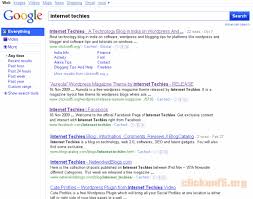.
Google's next generation of search, called Knowledge Graph, has been anticipated within high-tech circles for months. The search options, which will be rolled out this week, are somewhat similar to Facebook's Timeline feature.
The search giant is pushing out the new Wikipedia-like features — it released a redesigned Google+ app for iPhone last week — ahead of Facebook's IPO, which is expected to raise as much as $18.4 billion and could value the social-networking giant above a staggering $100 billion.
Microsoft as well is doing a social makeover to its Bing search engine and has begun previews of some of the features.
"Search engines are presenting more and more structured data in search results," say Greg Sterling, a tech analyst familiar with Google's product.
These features raise concerns about cluttering the spartan layout of Google, he says. "There's a question about clutter on the page. Does the layout become too bloated? How does this translate into mobile, where it might be most effective?"
Google's revamped search lets consumers sift through similar results with rich, visual results, according to Jack Menzel, director of product management for Knowledge Graph, who demonstrated the product.
The results troll a database of 500 million "people, places and things," says Menzel. "How do we reconcile messy data from all over the Internet? This is a map of information about people."
For example, a search for "Kings" results in a box on the right-side of the screen with brief summaries of the Los Angeles Kings hockey team, Sacramento Kings basketball squad and the "Kings" TV series on NBC. Clicking on each of the results yields even deeper data, including official sites and schedules.
Another new wrinkle: Results for master architect Frank Lloyd Wright yield a summary bio box with his birth date, education, family and renowned projects (with pictures).
Search results for popular bands show up in the form of tour dates, discography and similar music.
The more intuitive search results are consistent with Google's efforts to deliver on user demands for "answers, not links," says Sterling.
No comments:
Post a Comment